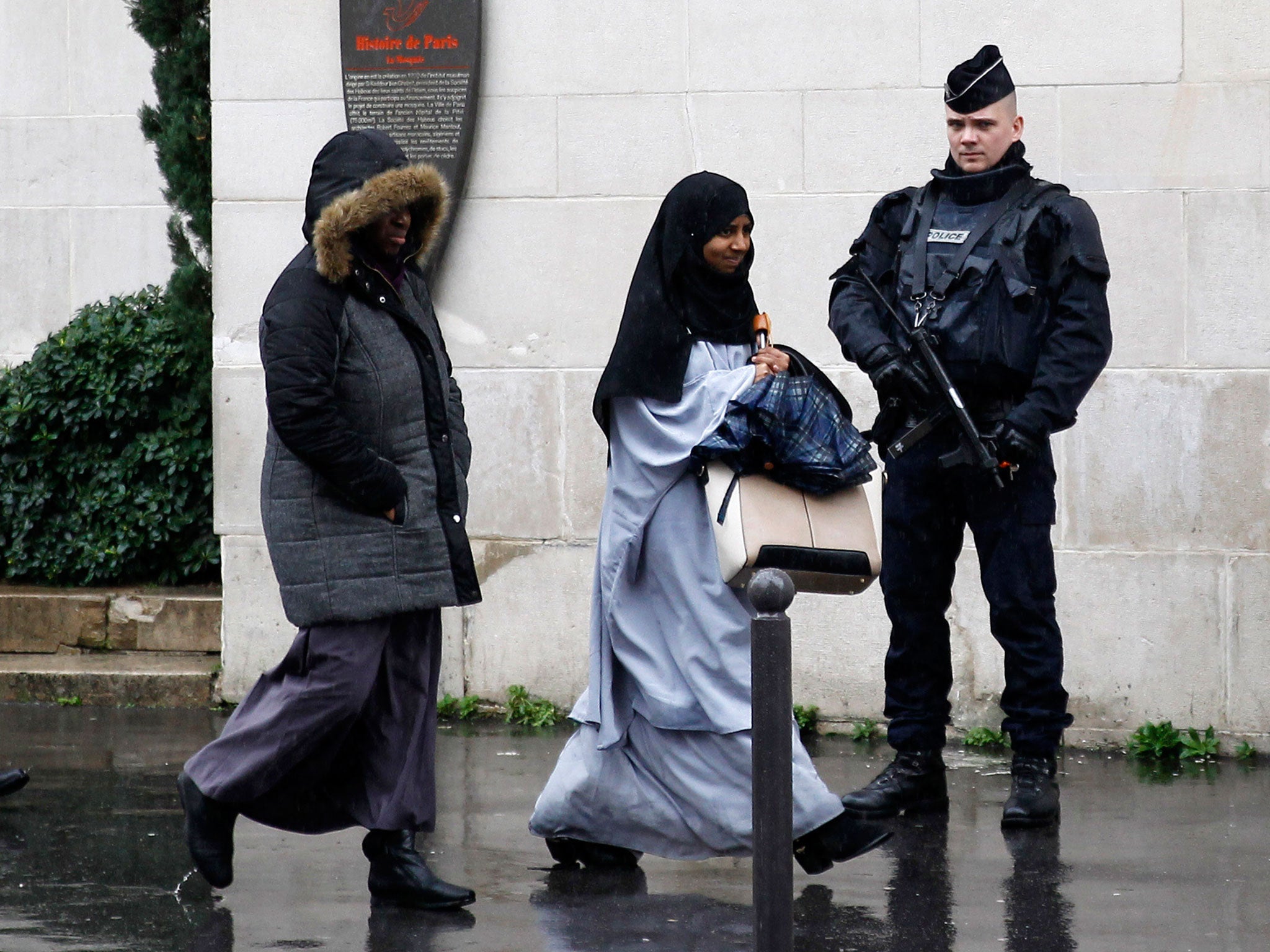French politician sparks outrage after calling for Muslims to be 'discreet' amid controversy over burkini bans
Jean-Pierre Chevènement has been charged with heading the 'Foundation for French Islam'

Your support helps us to tell the story
From reproductive rights to climate change to Big Tech, The Independent is on the ground when the story is developing. Whether it's investigating the financials of Elon Musk's pro-Trump PAC or producing our latest documentary, 'The A Word', which shines a light on the American women fighting for reproductive rights, we know how important it is to parse out the facts from the messaging.
At such a critical moment in US history, we need reporters on the ground. Your donation allows us to keep sending journalists to speak to both sides of the story.
The Independent is trusted by Americans across the entire political spectrum. And unlike many other quality news outlets, we choose not to lock Americans out of our reporting and analysis with paywalls. We believe quality journalism should be available to everyone, paid for by those who can afford it.
Your support makes all the difference.The incoming head of France’s government body on Islam is facing a mounting backlash for suggesting Muslims should be “discreet”.
Jean-Pierre Chevènement, 77, has been charged with heading the Foundation for French Islam by President Francois Hollande – despite not being a Muslim himself.
“The advice I give in these difficult times – like the imam of the Bordeaux mosque - is that of discretion,” the former interior minister told Le Parisien.
“Muslims, like all French citizens, should be able to worship freely but they must also understand that in the public space where there is public interest, all citizens should make the effort to use ‘natural reason’.“
The call for “discretion” provoked outrage on Twitter, with critics comparing it to Nazi-era policies amid reports of rising Islamaphobic attacks in the country.
“French politician advises Muslims to stay discreet in public. Welcome to 1939,” wrote one woman.
Many said the demand was an affront to France’s values of “liberté, égalité, fraternité”, while the hashtag #MusulmanDiscret (#DiscreetMuslim) had a more sardonic take on the controversy.
The French government is investing in reviving the Foundation, a project originally set in motion 11 years ago, to “integrate” Islam with a sense of nationalism.
Proposals include giving imams “secular training”, the creation of an Islamic research institute and preventing mosques relying on foreign funding, possibly through a voluntary tax on halal meat.
Defending his selection as a non-Muslim, Mr Chevènement described himself as a “secular republican”, adding: “Secularism is not set against religion, it frees spirituality from any influence of the state. I have no intention to interfere in the religious sphere.”
He said he wanted to prevent young French Muslims from “falling into the suicidal cult spread by Daesh (Isis) and salafists”.
There is growing tension between French secularism and religious freedom, with outrage over a ban on “burkinis” in some Riviera resorts and the continuing prohibition of full-face veils.
The country is home to 4.7 million Muslims according to Pew Research, making up 7.5 per cent of the population and standing as the country’s second-largest religion.
The issue of integration has come under scrutiny following the terror attacks in Nice, Normandy and Paris, as well as the presence of French fighters among Isis’ ranks in Syria.
Critics have said the burkini bans and other measures are discriminatory and counter-productive, further alienating communities and fuelling extremist propaganda.
Join our commenting forum
Join thought-provoking conversations, follow other Independent readers and see their replies
Comments